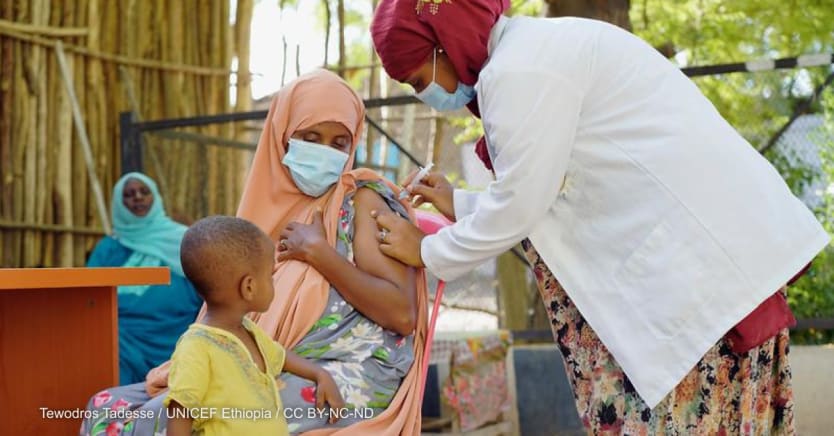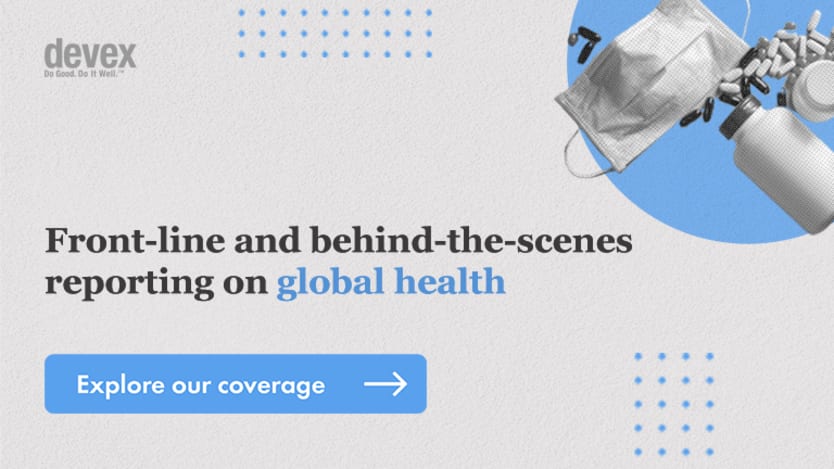
“The pandemic does not end for one country until it ends for every country,” Global Health Strategies wrote in a tweet. Truer words were never spoken. The relentless spread of COVID-19 has exposed our collective vulnerability. Many countries are experiencing persistent resurgences of the virus, including African countries that are in the throes of a third wave. The pandemic is far from over.
The rapid development of COVID-19 vaccines at breakneck speed gave us real hope that the pandemic’s end was possible. The COVAX scheme was to serve as a model for equitable vaccine procurement and distribution, aiming to deliver 2 billion vaccine doses to low-income countries by the end of 2021.
However, COVAX has fallen short of this ambitious target, delivering only about 25 million vaccine doses so far. Some lessons should have been learned from the H1N1 outbreak when the developing world lacked vaccine access. It seems like déjà vu with COVID-19 vaccine distribution.
However, to date, many African countries have barely been able to vaccinate up to 1% of their population with at least one vaccine dose. Meanwhile, many high-income countries have vaccinated over a third of their population with first doses.
As countries reopen their economies and slowly remove restrictions, we need to keep in mind that the pandemic is not yet over, and we are only as strong as our weakest link.
—Equitable access to vaccines — the best tools at our disposal — has been blunted by the inequity in global vaccine distribution.
It is for this very reason that the recent donor country pledges at the G-7 to donate 1 billion vaccines to low-income countries were initially welcomed. The question now is: How many vaccine doses will low-income countries actually receive — and, more critically, how soon will the shots actually get into the arms of the most vulnerable populations?
In reality, many of the vaccine pledges will not be fulfilled as quickly as they are needed.
Many of the pledges do not have a timeline and receiving vaccines in 2022 may be too late. And virus mutations are fast becoming variants of concern, as we are witnessing with the delta variant. Nigeria just confirmed its first case of the delta variant. We are now in a race against time with reports of the “delta plus” variant fast on our heels.
Sign up for Devex CheckUp
The must-read weekly newsletter for exclusive global health news and insider insights.
Health facilities in some African countries are now struggling to keep up with the increased demand for oxygen to avert deaths. The rapid escalation of COVID-19 in countries such as Kenya, South Africa, and Uganda is putting immeasurable strain on already very fragile health systems.
Pledges give hope, and if nothing else, signal a move in the right direction. We are now facing a two-track pandemic with high-income countries reopening their economies, while many low- and middle-income countries are struggling to contain the virus.
Decisive action is now needed to avert the continued upsurge in cases. Ensuring accountability and equity in vaccine distribution will require the following actions.
First, fulfilling the G-7 vaccine pledges quickly and within a very clearly defined timeline would be a game-changer, as it will avert the current steep upwards trajectory of COVID-19 infections in African countries. Since the pledges were made, the World Health Organization has sustained its appeal for vaccines to be shared faster.
The United States shipped 55 million vaccines to low-income countries, as part of its initial commitment to donate 80 million vaccines. But the timeline to share a further 500 million vaccines appears vague.
Second, it is time to choose equity in vaccine distribution over self-preservation. Sharing vaccine doses would enable all countries to get ahead of COVID-19 and the potential for more variants. The COVID-19 vaccine rollout has become the ultimate test in global solidarity, exposing the worst consequences of vaccine nationalism.
The influence of politics in the vaccine rollout cannot be overlooked. Dr. Tedros Adhanom Ghebreyesus, director-general of WHO, described vaccine distribution inequity as a “catastrophic moral failure” that is leaving the developing world behind. This heightens the urgency for vaccine sharing.
Third, the longer the transmission of the virus from person to person continues, the greater the chance of mutations, leaving the door open for future possible strains, and potential resistance to existing vaccines.
With cases rapidly escalating and African countries’ governments unable to get hold of vaccines quickly enough, pharmaceutical companies need to come on board. It is time they play their part by ramping up vaccine production. The recent agreement between Pfizer and BioNTech and the Biovac Institute in South Africa, which will enable vaccines to be manufactured in the country, will increase supply — but vaccine production will only start in 2022.
And lastly, before the start of the G-7 summit in Cornwall, 12 global health leaders from an Independent Scientific Expert Group signed an open letter to the leaders of G-7 countries. In the letter, they made recommendations on how to bring an end to the pandemic.
One of the actions they recommended was for the G-7 to “use its influence to encourage the sharing of excess doses now.” There is now a greater urgency that this recommendation is heeded. As countries reopen their economies and slowly remove restrictions, we need to keep in mind that the pandemic is not yet over, and we are only as strong as our weakest link. We will never end the pandemic anywhere until we are able to control the spread everywhere.









